Avocado is a plant from the Laurel family. Avocados are native to southern Mexico, but have been cultivated from the Rio Grande to central Peru since before the arrival of Europeans. It is believed to have been known as early as 8, 000 years ago by the Mayans and Aztecs. Its name originates from the Nahuatl language and literally means testicles due to the avocado's resemblance to these anatomical organs.
The avocado was brought to Europe in the 17th century by the Spanish. Today, the largest producers are Brazil, Colombia, the USA, Indonesia and Mexico.
The popular types of avocados are: Guatemalan, Mexican and West Indian. Hybrid forms exist in all three species. Despite a number of hesitations, avocado is considered a fruit, not a vegetable.
Growing avocados
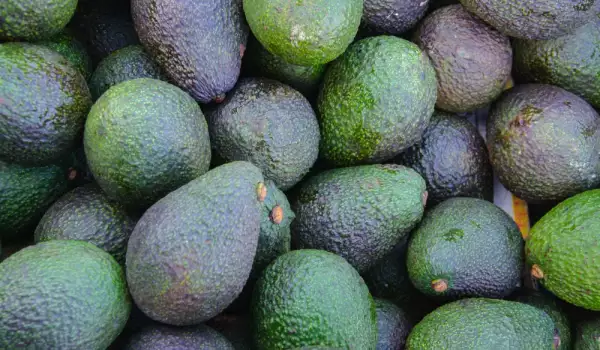
Avocados grow well in areas with a mild climate. West Indian varieties thrive in humid tropical climates and freeze at 0°C. The Guatemalan varieties are used to growing at cooler, high altitudes and are hardy at -2°C. Mexican varieties are used to growing on dry, subtropical zones and thrive in a Mediterranean climate. They are durable at -5°C.
Avocados need protection from strong winds, that can easily break the branches of the fruit tree. Avocado trees cannot survive in soil with poor drainage. The trees grow well on hillsides and should never be planted in a stream bed. They are tolerant of acidic or alkaline soil. Harvest time for avocados depends on the variety. Commercial standards require the fruit to reach 8% oil content before harvest.
Mexican varieties ripen 6 to 8 months from flowering, while Guatemalan varieties are usually harvested 12 to 18 months. The fruits may continue to enlarge on the tree even after they have ripened. The purple species must reach their full coloration before they can be picked.
Guatemalan varieties can be stored fresh at 15-20°C for up to six weeks. Mexican varieties discolor quickly and require immediate consumption.
The avocado is a thick, evergreen tree that produces many leaves in early spring. It is fast growing with age and can reach 13 meters. Grafted plants usually bear fruit within one to two years compared to the 8 to 20 years required to produce seedlings.
Avocado flowers appear in January-March, with terminal inflorescences containing 200 to 300 small yellow-green flowers. Each inflorescence produces only one to three fruit. West Indian types of avocados produce huge, smooth, round, glossy, green fruit, which are low in oil and weigh up to 2 kg. The Guatemalan variety fruit are medium-sized, egg-shaped or pear-shaped, with a rough skin and reach a dark-green color when ripe. The fruit of the Mexican varieties are small, thin-skinned and turn glossy green or black when ripe.
The inside of the avocado is green near the skin and turns yellowish in the interior, near the inedible egg-shaped stones. Avocados are firm when freshly picked, but soften to a buttery texture. The avocado is not subjected to heat treatment, because it starts to burn.
Composition of the avocado
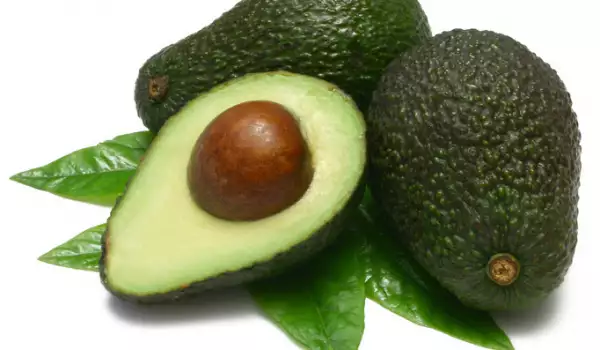
The biochemical composition of the avocado is more reminiscent of a nut than a fruit. Avocado provides the body with protein in an amounts, that can easily replace meat and cheese in a person's daily diet.
Avocado is a good source of iron, zinc, potassium and magnesium, vitamins B1, B2, B6, A, PP, E. 100 grams of avocado contain 218 calories. It is also rich in vegetable proteins, oleic acid, dietary fiber, digestible fats and about 2% carbohydrates. Nutritional value - 212 kcal per 100g. The leaves contain essential oils and trace elements.
Selection and storage of avocados
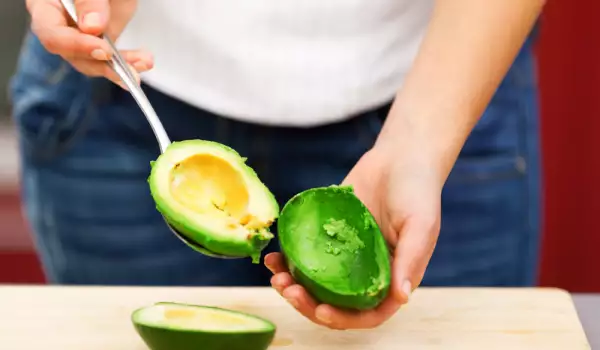
You will know a ripe avocado well by its deep green color. Its skin is shiny, free of cracks, black spots and dry areas. Unripe avocado can ripen placed at room temperature for about a week. When the avocado ripens well, its skin begins to gradually darken. Green avocados should not be refrigerated. Ripe avocados can be refrigerated for up to two weeks. It is best to store a cut avocado with the skin on. That way it does not brown on top and it is necessary to drizzle it with lemon juice. Even if it darkens, don't worry because it is still edible. If you don't like it, just cut out the brown part with a knife. Cut avocados can also be placed in a plastic bag and kept in the refrigerator.
If you want to freeze an avocado, you have to mash it. Cut it in half, remove the stone and scoop out the fleshy part with a spoon. Mash it well and distribute it in ice molds. Once frozen, remove the molds and store them in the freezer in a plastic bag. This is how you can store avocados for up to 3 months.
Culinary use of avocado

Before enjoying the taste of avocados, you should know that avocados are only eaten raw. If it undergoes heat treatment, it becomes bitter.
Fresh avocado is very tasty in purees, sandwiches and side dishes for fish. Steamed avocado can be eaten with nuts and vegetables. Mashed avocado is part of the famous guacamole. Chicken or shrimp salad with sliced avocado is a very tasty and it's an exotic temptation. Avocado goes perfectly with toast and vegetable patties. Avocado is part of many exotic salads, green salads or a simple salad with tomatoes and oregano.
In America, they make ice cream from avocados and in Indonesia they even use it for cocktails. In addition, avocado is a great addition to sauces, soups, ham and seafood. If you like, you can simply slice it and season it with salt.
Avocado benefits

The content of oil in avocados is second only to olives and sometimes even higher. The biochemical composition of the avocado gives enough protein to completely replace meat and cheese in the daily diet.
Clinical studies show that avocado oil can lower blood cholesterol. The stones and extracts of avocado leaves are used for various medicinal purposes, including the treatment of diarrhea, dysentery and as an antibiotic.
Avocado is used in the treatment of diabetes, high blood pressure, cardiovascular, eye, kidney, liver and biliary diseases, ulcers, gastritis and anemia. It speeds up the metabolism, acts against tumors and cancers and strengthens the immune system. It has a positive effect on the nervous system and the mental health. It is also beneficial for women as it regulates the monthly cycle. In short - the tropical fruit has "cures" for almost all diseases.
Since the avocado is very rich in antioxidants and minerals, it becomes a miracle fruit that, in addition to its health benefits, increases tonicity and prolongs youth.
Benefits of avocado for women

For the women, avocado is an indispensable helper and ally. This ingredient is actively used in cosmetics and dietary nutrition. Due to its high content of vitamin E, the oil is often used in the production of face creams and masks and also in hair conditioners. A large number of women who have used products with avocado note that wrinkles are reduced, skin is cleared, elasticity is increased and dark circles under the eyes are visibly reduced.
Avocado oil is used also as a base. It has a neutral fragrance and easily penetrates the epidermis. It perfectly fights flaking and inflammation of the skin, by giving it a glow and a healthy complexion.
It is often added to nail and hand care products, anti-cellulite products, soaps and lipsticks. Along with this, avocados are actively added to the diet by people who want to lose weight and lead a healthy lifestyle. It gives a feeling of satiety and at the same time does not saturate the body with excess fat. It normalizes the metabolism and processes in the body. It helps fight excess weight and tightens the skin.
Avocado benefits for men

It is especially useful for men, who actively play sports and engage in some strength sport. Thanks to the L-carnitine contained in the avocado in large quantities, it increases endurance and concentration during active physical exertion, for example running, swimming, bodybuilding and others.
Avocado helps not only in the fight against extra weight. It is also useful for building muscle mass, as it is rich in protein. They are the basis for the construction of muscle fibers, actively involved in the transport of oxygen, vitamins and hormones in the body.
The benefit of avocado for the reproductive function in men has also been proven. Its regular consumption helps increase potency, increases sperm activity and the chance of conceiving a child.
The folic acid contained in it is no less useful for men, as it prevents the development of oncology of the prostate gland and improves the quality of sperm. That is why avocado extract is often included in various medications for maintaining potency, treating prostatitis and prostate adenoma.
Harms from avocados
There are no specific contraindications for its use and that is precisely why it is so often used in the preparation of food or cosmetics. However, in some cases it may harm:
1. In case of allergies and individual intolerance;
2. With regular use of avocado in large quantities, the natural microflora of the intestines is disturbed and the appearance of dyspeptic disorders in the form of belching and nausea is possible;
3. It should not be given to children under 2 years of age, since avocados may cause an allergic reaction. This is due to the not yet formed immunity and in this case the glycoprotein can be perceived as foreign by the child's body.
It is important to gradually introduce it into the menu in case of allergy to citrus fruit, since this fruit is also exotic. In the beginning, it is consumed in very small portions and only after the absence of side effects is established, the amount can be increased. In case of diseases of the stomach tract, you should consult a medical professional beforehand, as this may have a negative effect on digestion.
People who have diabetes should not abuse the consumption of avocados, because of the carbohydrate content - about 9 g per 100 g. This also applies in the case of diagnosed gout, since each 100 g contains about 10% of the daily protein intake. An excess of them can provoke an exacerbation of the disease.
Check out more avocado recipes, our most delicious avocado salads and if you're expecting guests, maybe treat them to some avocado spreads.
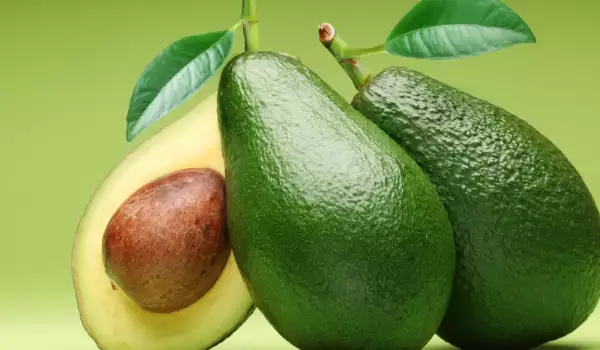
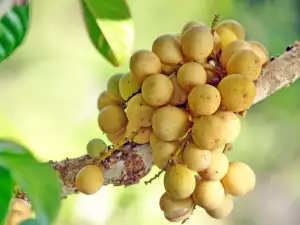

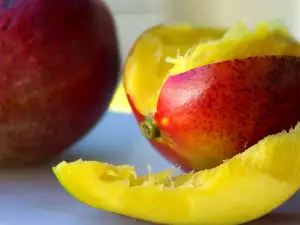

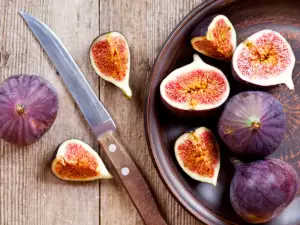

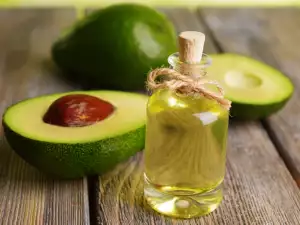
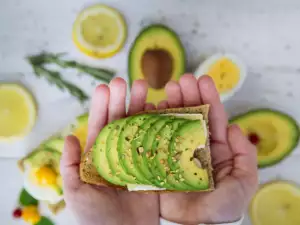
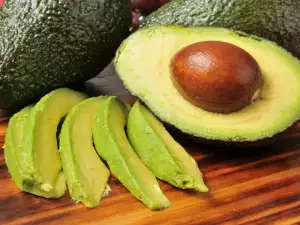
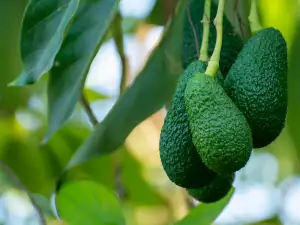

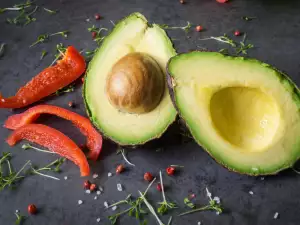






Comments